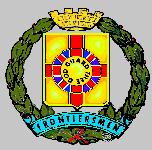
|
Legion of Frontiersmen of the Commonwealth by 2Lt Geoff Blackburn
Patron: Countess the Rt Hon Mountbatten of Burma CBE CD JP DL AMM |
|
IN AFRICA - NORTH, SOUTH, EAST, WEST AND CENTRAL BY MAJOR TOM CUSHNY, LMSM The following paragraphs from Major Tom Cushny's notes (LINK TO MAJOR CUSHNEY BIO/BIBLIO) written sometime before his death in 1977, seek to explain why, at that time, there are no Commands of the Legion of Frontiersmen on Continental Africa, despite the presence of many former British Colonies. This passing had much to do with the break-up of the British Empire and the development of self-government within the former British Colonies. It is to be hoped that now that time has passed and these colonies see that membership of the British Commonwealth is advantageous, then the situation will change to allow the formation of new Commands of the Legion in these countries where the Legion formerly played such an important role. (GVB) In 1948 Field Marshal J.C. Smuts, PC, MP, Prime Minister of the Union of South Africa, was not only personally defeated in the general election but his party was, too, and they were replaced by the extreme right Nationalists. Faced with the hostility of the newly made independent Afro-Asian states that now emerged as self-governing nations of the British Commonwealth, South Africa declared herself a Republic in 1961, outside this Mendelian hybrid of incommensurable diversity. The South African Constitution was rewritten and allegiance became indivisible and absolute. Clearly, this was the sounding of the death-knell of the Legion in the very country of its conception. Nigeria, too, at this period in time, had evolved from a former British Protectorate to an independent state within the British Commonwealth, followed shortly afterwards by Kenya Colony in 1963. The former had a Legion command under Capt Black and the latter a much larger command under Major Logan Hook. Both faced the same stumbling blocks - the question of allegiance, the forbiddance of wearing of uniforms other than those of the State and an absolute clamp down on private armies, quasi, neo or otherwise. I guess this put paid, with no uncertainty, to the services of the Legion so freely given, in peace and emergency, over long periods in those areas. Rhodesia declared unilateral declaration of independence in 196O, severing its connection with the United Kingdom and becoming a Republic outside the British Commonwealth. The same position arose in Rhodesia as had arisen with the other commands of the Legion of Frontiersmen in Africa which were all constituted under the Imperial Charter in which they owed allegiance to H.M. the Queen. In 1967 the OC Legion of Frontiersmen, Rhodesian Command, Lieut-Col Archard, OBE, 'solved' this complication by turning his unit into a Legion of Frontiersmen Old Comrades' Rifle Club! I would very much have preferred to see this done in traditional military style with the pomp and solemnity of the ceremony of the laying-up of colours on the disbandment of a regiment. In 1971, I, as Officer Commanding of the South Africa Command, Legion of Frontiersmen, prior to immigrating to Rhodesia, completed the winding up of the Legion in South Africa. These ceremonies were conducted in all solemnity in the presence of the now disbanded Frontiersmen dressed in Legion blazer and tie, standing as stiffly as ramrods, fighting back the inevitable tears in their eyes as a trumpeter blew the Last Post. Thus, the last of the formations of the Legion of Frontiersmen in Africa was laid to rest with honour. Another article by Manjr Cushney. See also: 'The Demise of the Legion of Frontiersmen in Africa', Major T. Cushny, LMSM Military History Journal, Vol 4 No 2 December 1977 SA ISSN 0026-4016, The South African, Military History Society
|

